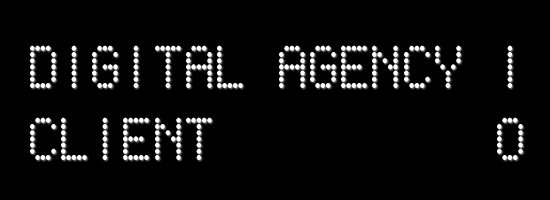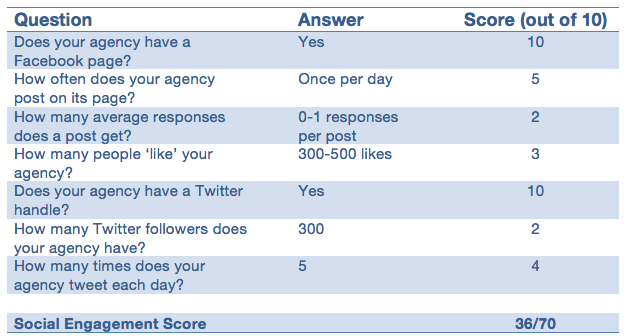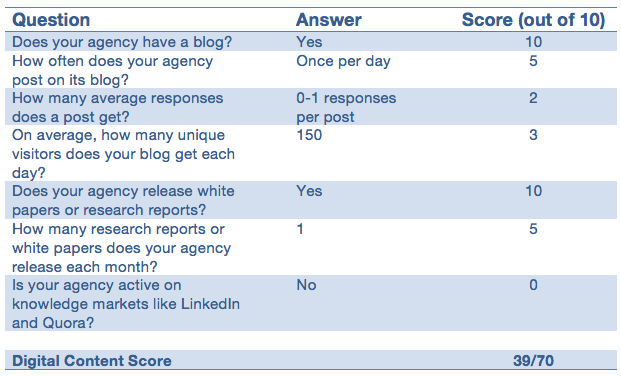
Companies aren’t happy with the level of digital proficiency they’re seeing from agencies, but at the same time those companies have haphazard systems for appraising work agencies are doing in the online realm. It’s not surprising. After all, “you don’t know what you don’t know” right?
How can brands expect to hire the right agency when they have no way of identifying and evaluating the right skill sets? We believe the way that agencies represent themselves in the digital world says a lot about the work they do for their clients.
Clients aren’t happy…
Results highlighted in a new Chief Marketing Officer (CMO) Council report dubbed “More Gain, Less Strain” show that clients are disappointed by agency performance, most notably because they feel agencies are not keeping up with developments in social media, mobile marketing and other digital whizbangery.
In fact only 9% of senior marketers believe traditional ad agencies are doing a good job of evolving and extending their service capabilities in the digital age.
51% see their agencies as playing catch-up with regards to new technology, or acquiring but not integrating digital marketing capabilities.
Long story short, agencies aren’t cutting it when it comes to digital.
But no one is keeping score
Unhappy as they may be, most marketers don’t have a documented process for evaluating the work that agencies do on their behalf. Only 44% of marketers say they have a formal scorecard for rating agency performance on an annual basis while 52% have no such mechanism.
As the CMO Council’s executive Director Donovan Neale-May notes, “there’s an underlying level of frustration among senior corporate marketers worldwide when it comes to agency contributions to business value creation, strategic thinking and digital marketing development.”
Let’s start keeping score
Client disappointment is an important and poignant revelation, but the CMO Council’s real discovery is the need for a better digital marketing scorecard.
A company looking to hire would rely on a consistent system that evaluates the agency’s own digital presence including components like social, digital content, CRM and mobile. Because if an agency can’t support its own digital ecosystem, can they really support their clients’?
Below are a few hypothetical examples of digital marketing scorecards. We created rough templates for social engagement and digital content, which could be easily altered to suit different digital needs. It’s a concept in development – so don’t use these scorecards as an ad hoc agency evaluation tool.
Social Engagement Scorecard

Digital Content Scorecard

This hypothetical agency understands the potential of social media, but is not actively engaging in the challenging B2B marketplace. Lack of substantive Facebook presence may indicate a poor strategic vision of how social media works for brands and a lack of discipline for modern digital marketing programs. After all, we know that there are advertising agencies on Facebook, and that there should be advertising agencies on Facebook. This agency is capable of generating good ideas, but may not be capable of executing those ideas to accomplish real business goals. Come to the table with success metrics in social media and employ social media monitoring tools independent of agency work to ensure goals are being met. Challenge the agency to connect social media activity to specific business goals like clicks, conversions and sales and maintain accountability to do so.
In the same way execution of digital content initiatives may be lacking. Frequency of posting and engagement has a direct relationship with traffic volume. The biggest challenge with digital content is discipline in execution, so think twice about hiring a digital agency that doesn’t maintain consistent blogging, email marketing, tweeting and research reports.
Scorecard questions and measurements should change based on specific project requirements. Weighting could be added in based on scope, success criteria and budget.
Do you believe digital agencies should be held accountable for their work? How would you improve our scorecard concept?